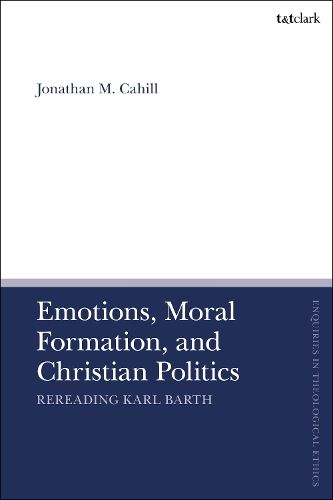Readings Newsletter
Become a Readings Member to make your shopping experience even easier.
Sign in or sign up for free!
You’re not far away from qualifying for FREE standard shipping within Australia
You’ve qualified for FREE standard shipping within Australia
The cart is loading…






This volume addresses the social-relational nature of moral formation, emotions, and moral agency. Drawing on Barth's theological anthropology and his relational conception of the self, Cahill argues that Barth envisions moral progress as rooted in the growth of the community. Cahill also explores Barth's view of emotion in conversation with the study of emotions in psychology, sociology, neuroscience, and philosophy.
Building on Barth and these other disciplines Cahill argues for a relational and cognitive conception of emotions while highlighting emotions' critical role in regulating group and social relations. Emotions are fundamental to interpersonal interactions, to group relations, and for the reinforcement and disruption of social structures. This account of moral formation and emotion is illustrated through the example of climate change. A community shaped by love for God, solidarity with other creatures, and a concern for all of creation leads to an awareness of hegemonic forces and fosters emotions shaped by the kingdom of God that enables the struggle for climate justice.
$9.00 standard shipping within Australia
FREE standard shipping within Australia for orders over $100.00
Express & International shipping calculated at checkout
This volume addresses the social-relational nature of moral formation, emotions, and moral agency. Drawing on Barth's theological anthropology and his relational conception of the self, Cahill argues that Barth envisions moral progress as rooted in the growth of the community. Cahill also explores Barth's view of emotion in conversation with the study of emotions in psychology, sociology, neuroscience, and philosophy.
Building on Barth and these other disciplines Cahill argues for a relational and cognitive conception of emotions while highlighting emotions' critical role in regulating group and social relations. Emotions are fundamental to interpersonal interactions, to group relations, and for the reinforcement and disruption of social structures. This account of moral formation and emotion is illustrated through the example of climate change. A community shaped by love for God, solidarity with other creatures, and a concern for all of creation leads to an awareness of hegemonic forces and fosters emotions shaped by the kingdom of God that enables the struggle for climate justice.